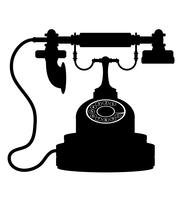- cross-posted to:
- hackaday@rss.ponder.cat
- cross-posted to:
- hackaday@rss.ponder.cat
Having a penchant for cheap second-hand cameras can lead to all manner of interesting equipment. You never know what the next second-hand store will provide, and thus everything from good quality rangefinders an SLRs to handheld snapshot cameras can be yours for what is often a very acceptable price. Most old cameras can use modern film in some way, wither directly or through some manner of adapter, but there is one format that has no modern equivalent and for which refilling a cartridge might be difficult. I’m talking about Kodak’s Disc, the super-compact and convenient snapshot cameras which were their Next Big Thing in the early 1980s. In finding out its history and ultimate fate, I’m surprised to find that it introduced some photographic technologies we all still use today.


Kodak made a lot of attempts to move people to smaller film sizes, so they could sell less film for the same price. They made claims that their advances in film technology made the photos the same resolution as you would previously get in 35mm, which was sort of true, but that meant you could just stick with 35mm and get better resolution photos.
Ironically the only one that kind of worked was APS, it wasn’t that successful as a film format, but it was responsible for the APS digital sensor size.